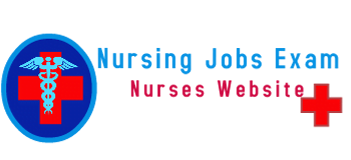Epilepsy is a chronic neurological disorder characterized by recurrent, unprovoked seizures due to abnormal electrical activity in the brain.
Pathophysiology of Epilepsy
👉Seizures occur due to abnormal synchronous neuronal activity.
👉Excitation exceeds inhibition, leading to sudden bursts of electrical discharges.
👉Affected areas in the brain determine the type and symptoms of seizures.
👉Long-term changes in neuronal circuits can lead to epileptogenesis, making future seizures more likely.
Types of Epilepsy
1. Focal (Partial) Seizures:
👉Simple Partial (no loss of consciousness)
👉Complex Partial (impaired awareness)
2. Generalized Seizures:
👉Tonic-clonic (Grand Mal)
👉Absence (Petit Mal)
👉Myoclonic
👉Atonic (Drop attacks)
3. Unknown Onset Seizures
4. Epileptic Syndromes (e.g., Lennox-Gastaut, Juvenile Myoclonic Epilepsy)
Causes of Epilepsy
👉Genetic predisposition
👉Brain trauma or injury
👉Stroke
👉Brain tumors
👉Central nervous system infections (e.g., meningitis)
👉Congenital brain malformations
👉Neurodegenerative diseases
👉Metabolic imbalances
👉Drug or alcohol abuse
👉Idiopathic (unknown cause)
Symptoms of Epilepsy
👉Convulsions
👉Loss of consciousness or awareness
👉Staring spells
👉Muscle stiffness or limpness
👉Confusion after seizures
👉Sudden emotional changes or sensations
Diagnosis of Epilepsy
👉Medical History & Neurological Exam
👉EEG (Electroencephalogram) – detects abnormal brain waves
👉MRI or CT Scan – identifies structural abnormalities
👉Blood tests – check metabolic and genetic conditions
Treatment for Epilepsy
👉Antiepileptic Drugs (AEDs): e.g., phenytoin, valproate, carbamazepine
👉Ketogenic Diet (especially in children)
👉Surgery: removal of seizure focus
👉Vagus Nerve Stimulation (VNS)
👉Responsive Neurostimulation (RNS)
👉Lifestyle modification (sleep, stress, medication compliance)
Complications of Epilepsy
👉Physical injuries from seizures
👉Status epilepticus (life-threatening prolonged seizure)
👉Depression, anxiety
👉Memory and learning problems
👉SUDEP (Sudden Unexpected Death in Epilepsy)
👉Social stigma and isolation
Prevention for Epilepsy
👉Prevent head injuries (e.g., helmet use)
👉Manage chronic conditions (e.g., hypertension, diabetes)
👉Avoid seizure triggers (stress, sleep deprivation, alcohol)
👉Adherence to medications
👉Regular checkups and monitoring drug levels
Nursing Diagnosis for Epilepsy
👉Risk for injury related to seizure activity
👉Impaired social interaction
👉Anxiety related to unpredictable seizure episodes
👉Ineffective health maintenance
👉Knowledge deficit regarding disease and management
Nursing Considerations for Epilepsy
👉Maintain seizure precautions (bed rails up, padded side rails, suction available)
👉Observe and document seizure characteristics (duration, type, triggers)
👉Administer medications on time
👉Educate patient and family on seizure management and first aid
👉Provide emotional support and promote patient independence
👉Coordinate with support groups and community resources





